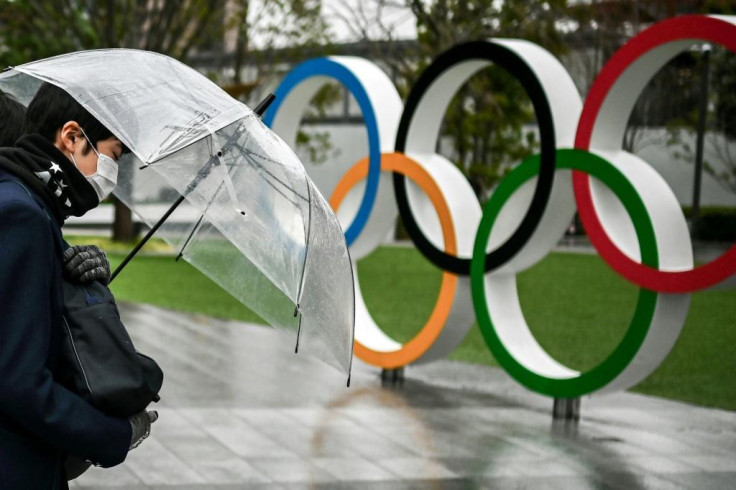Japan faces new virus emergencies, three months before Olympics
Tokyo on Thursday recorded 861 new infections, figures not seen since a last state of emergency in January.
Japan's government is to declare virus states of emergencies in Tokyo and three other regions on Friday, exactly three months before the Olympic opening ceremony, as new infections surge.
The measures will be stricter than Japan's last state of emergency, imposed in parts of the country from January, but still fall short of the harsh lockdowns seen in some parts of the world.
"We have a strong sense of crisis," Japan's minister for virus response Yasutoshi Nishimura said Friday.
The government now feels that "we won't be able to contain the mutated variants that have powerful infectious capabilities, unless we take stronger measures than what we've taken so far," he added.
An official declaration of the emergency is expected later Friday, with the measure expected to cover Tokyo, Osaka, Kyoto and Hyogo regions initially. Previous emergencies have been expanded to other areas after being announced.
The measures will reportedly ask businesses serving alcohol to shut throughout the period between April 25 to May 11, and also shutter major commercial facilities like shopping malls and department stores.
Local media said the measure, which will coincide with the Golden Week holiday that is Japan's busiest travel period of the year, could involve cutting some train and bus services to discourage movement.

Authorities in affected regions are also likely to bar spectators from sports events, but officials have been insistent that the emergency measures will have no impact on staging the Olympics.
Japan has seen a comparatively small virus outbreak, with fewer than 10,000 deaths despite never imposing the strict lockdowns since in other countries.
But virus cases surged over winter, when a second state of emergency was imposed in parts of the country, and have rebounded again after that measure was lifted in March.
Tokyo on Thursday recorded 861 new infections, figures not seen since a last state of emergency in January, while Osaka logged 1,167 cases, slightly down from a record number a day earlier.
Authorities in Osaka have said health facilities there are already overwhelmed, with beds for seriously ill patients running short.
Japan's vaccine programme is moving slowly meanwhile, with just over 1.5 million people given a first shot and only around 827,000 fully vaccinated.
Only the Pfizer vaccine has so far been approved, and approvals for the Moderna and AstraZeneca formulas is not expected before May at the earliest.
Copyright AFP. All rights reserved.
This article is copyrighted by International Business Times, the business news leader




















